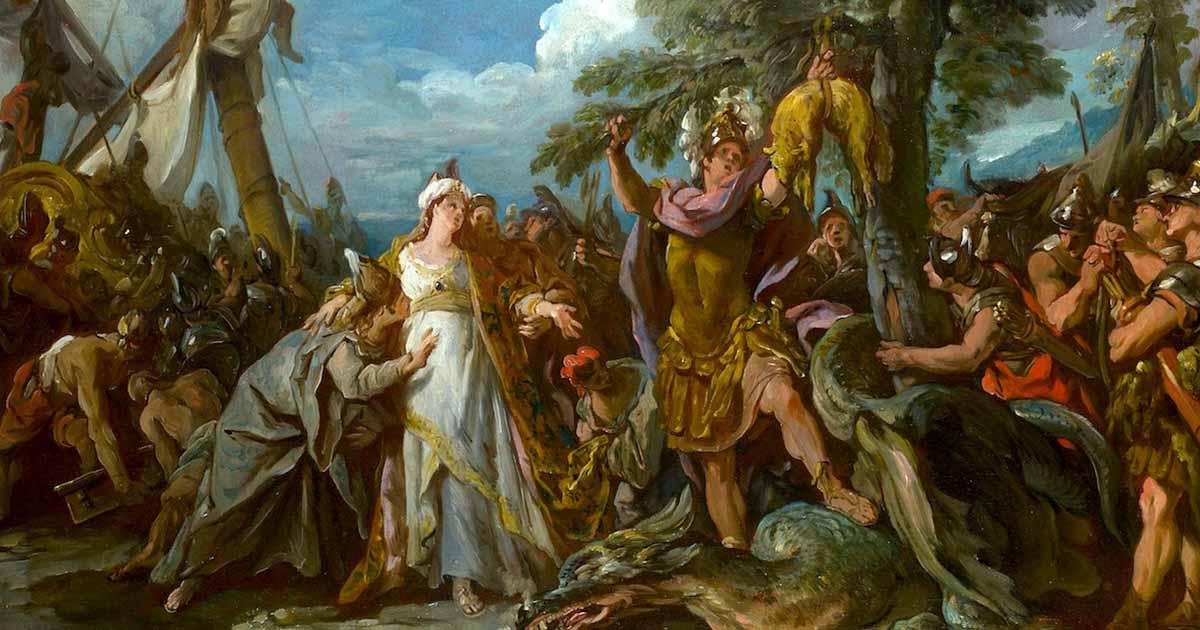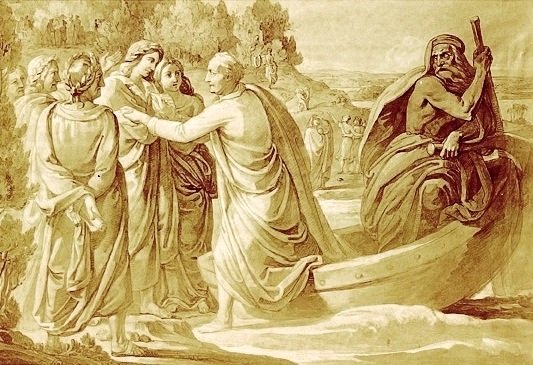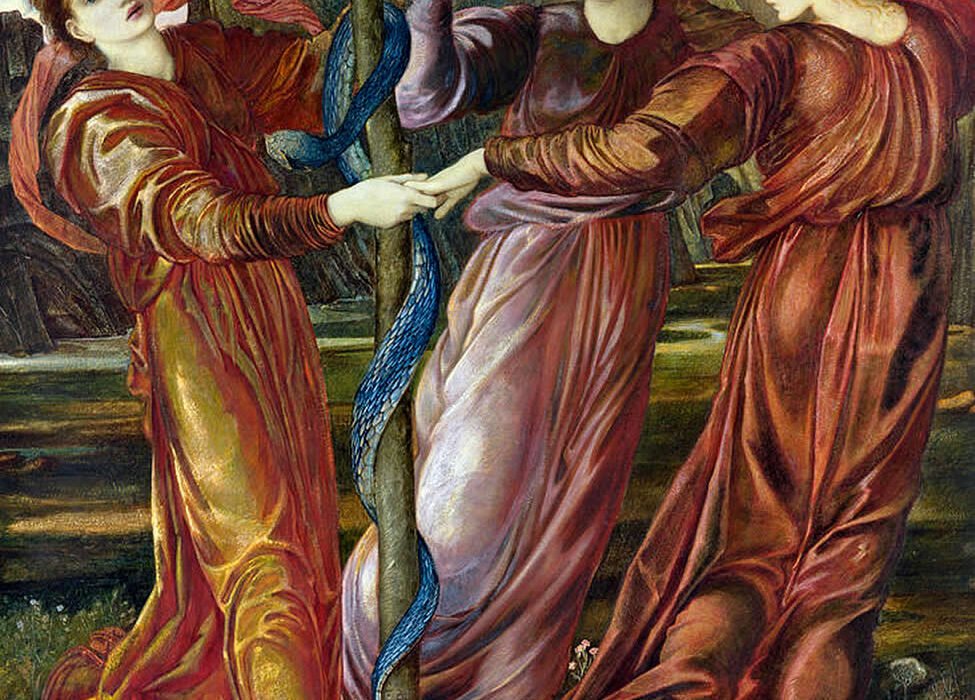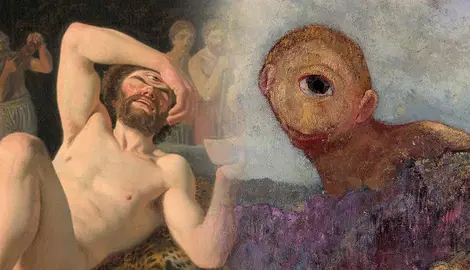Among the countless legends of Greek mythology, few shine with as much brilliance and adventure as the tale of Jason and the Quest for the Golden Fleece. It is a story woven from threads of betrayal, love, courage, and divine intervention. It is an odyssey that has captivated imaginations for millennia, echoing across cultures, inspiring poets, painters, playwrights, and storytellers throughout history.
To speak of Jason’s quest is to speak of a journey not just across seas and kingdoms, but into the very soul of what it means to be human: the desire to reclaim what is lost, the willingness to risk everything for honor, and the tragic price often paid for glory. This is no simple adventure story—it is a myth that blends the mortal with the divine, the heroic with the flawed, and the glorious with the devastating.
The World That Gave Birth to the Tale
Greek mythology emerged from an ancient world where storytelling served as both history and moral compass. These myths were not only entertainment; they were explanations for natural forces, explorations of human behavior, and reflections of cultural values. The story of Jason and the Golden Fleece is set within this grand tapestry of gods, heroes, and monsters, deeply connected to themes of kingship, justice, and divine favor.
The myth itself reflects the Greeks’ relationship with the sea. The Aegean and Mediterranean were both highways of commerce and sources of peril. To set out on a ship was to gamble with destiny. Jason’s journey aboard the Argo embodies this reality, combining the dangers of the ocean with the unpredictability of human ambition.
The Kingdom of Iolcus and Jason’s Birthright
Jason’s tale begins in Iolcus, a kingdom in Thessaly, where political treachery shaped his destiny. His father, King Aeson, rightful ruler of Iolcus, was overthrown by his half-brother, Pelias. To secure his throne, Pelias sought to eliminate all rivals, forcing Aeson to hide his young son Jason.
According to the myth, Jason was secretly sent away to be raised by the wise centaur Chiron. In the wilderness, under Chiron’s guidance, Jason learned the skills of warfare, leadership, healing, and wisdom. This upbringing was crucial, for Jason would need not only courage but also intelligence to succeed in his destiny.
When Jason came of age, he returned to Iolcus to claim his birthright. Fate, however, had already set the stage for his great trial.
The Prophecy and the Man with One Sandal
Greek myths often pivot on oracles and prophecies, and Jason’s story is no different. An oracle warned King Pelias that he would one day be overthrown by a man wearing only one sandal.
The prophecy began to take form when Jason, on his way to confront Pelias, came upon an old woman by a river. He carried her across the rushing waters, losing one of his sandals in the process. The woman was revealed to be none other than the goddess Hera in disguise. Grateful for his kindness, Hera became Jason’s divine protector—a powerful ally against Pelias, who had neglected to honor her.
When Jason arrived at Iolcus with a single sandal, Pelias recognized the fulfillment of the prophecy. Too fearful to kill him outright, Pelias devised a seemingly impossible challenge: Jason could reclaim the throne only if he brought back the Golden Fleece, a treasure guarded in a far-off land.
The Symbol of the Golden Fleece
The Golden Fleece was not just a glittering artifact—it was a symbol of kingship, authority, and divine power. According to legend, it came from a golden ram sent by the gods to rescue Phrixus and Helle, children threatened by their stepmother. The ram carried them across the sea, but Helle fell into the waters—her name living on in the Hellespont, the strait connecting the Aegean and Black Seas.
Phrixus, however, survived and reached Colchis, a kingdom at the edge of the known world. There, he sacrificed the ram to Zeus and presented its magnificent fleece to King Aeëtes, who hung it in a sacred grove, guarded by a never-sleeping dragon.
The fleece was thus both a divine relic and a prize of immense prestige. To bring it back would prove Jason’s worthiness to rule.
The Gathering of Heroes: The Argonauts
No hero undertakes such a journey alone. To fulfill his quest, Jason assembled one of the greatest crews in Greek mythology, aboard a ship named the Argo. Built with the help of Athena, the Argo was said to contain a piece of sacred oak from Zeus’s oracle at Dodona, giving it the power of prophecy.
The crew became known as the Argonauts, and their names still resound in myth. Among them were Hercules, the strongest of men; Orpheus, whose music could tame beasts and move stones; Castor and Pollux, the divine twins; Atalanta, the swift-footed huntress; and many other heroes. Each brought unique skills, and together they represented the very spirit of Greek heroism.
The Argo set sail, carrying not only Jason’s hopes but also the dreams of a generation of heroes seeking glory.
Trials Along the Journey
The voyage of the Argonauts was as perilous as it was glorious. Along the way, they encountered dangers that tested both their courage and their unity.
They first landed on the island of Lemnos, inhabited only by women who had slain their husbands. Here, Jason and his men lingered, distracted from their quest until Heracles reminded them of their mission.
Further along, they confronted the Harpies—vile creatures tormenting the blind prophet Phineus by stealing his food. The Argonauts rescued him, and in gratitude, Phineus revealed the secret to passing the deadly Symplegades, or Clashing Rocks, which crushed any ship attempting to sail between them. With divine guidance and clever strategy, the Argo passed through safely, marking one of the greatest feats of the voyage.
Every trial revealed not only the dangers of the world but also the necessity of unity, bravery, and divine aid.
Colchis and the Meeting with Medea
Finally, the Argonauts reached Colchis, the land of the Golden Fleece, ruled by King Aeëtes. The king, reluctant to surrender such a sacred treasure, set Jason to an impossible task: he must yoke two fire-breathing bulls, plow a field, and sow it with dragon’s teeth that would spring into armed warriors. Only then could he claim the fleece.
It was here that the most fateful figure in Jason’s life entered the story—Medea, daughter of Aeëtes. A powerful sorceress and priestess of Hecate, Medea was struck by love for Jason, a passion kindled by the gods themselves. Torn between loyalty to her father and her heart, she chose Jason, offering her magic to help him succeed.
With Medea’s enchanted ointment to protect him from fire, Jason subdued the bulls. When the armed warriors sprang from the earth, he cleverly threw a stone among them, causing them to turn on each other until none remained. Still, Aeëtes plotted to betray him.
Once again, Medea intervened. She led Jason to the grove where the fleece hung, guarded by the sleepless dragon. Using her potions and charms, she lulled the beast into slumber, allowing Jason to seize the Golden Fleece at last. Together, Jason and Medea fled Colchis, pursued by Aeëtes’ forces, in an escape that would forever mark their lives with blood and sorrow.
The Return Voyage and Medea’s Sacrifice
The return journey was as dramatic as the quest itself. To delay her father’s pursuit, Medea committed a chilling act: she killed her own brother, Absyrtus, scattering his body in the sea so that Aeëtes would be forced to collect the pieces. This dark deed revealed the tragic cost of Jason’s quest—victory bought with betrayal and blood.
The Argonauts faced more trials on their way back. They encountered Circe, Medea’s aunt, who purified them for their crime. They passed by the Sirens, whose deadly song was countered by Orpheus’s music. They sought refuge in the court of King Alcinous, where Medea and Jason were wed. At last, after countless trials, they returned to Iolcus, carrying the Golden Fleece as proof of Jason’s triumph.
Jason’s Hollow Victory
Though Jason succeeded in his quest, his story did not end in triumph. When he presented the fleece to Pelias, the usurper king still refused to relinquish the throne. In revenge, Medea used her sorcery to trick Pelias’s daughters into killing him, believing they were performing a ritual of renewal.
But such violence left Jason and Medea outcasts. They fled to Corinth, where their lives unraveled in tragedy. Jason, seeking political advantage, abandoned Medea to marry the princess of Corinth. Betrayed and enraged, Medea enacted a vengeance that would echo through time: she killed Jason’s new bride, and in her most devastating act, slew their own children before fleeing in a chariot sent by the gods.
Jason, once a celebrated hero, ended his days alone, cursed by the gods. According to some versions, he died when a rotting beam from the Argo fell upon him—a bitter reminder that glory, once attained, cannot shield one from fate.
The Symbolism of the Quest
Jason’s quest for the Golden Fleece is more than an adventure—it is a myth layered with symbolism. The fleece represents power, legitimacy, and divine favor, echoing the human desire to reclaim lost honor. Jason’s reliance on Medea reflects the complexities of love and betrayal, while his ultimate downfall illustrates the tragic flaws that haunt even the greatest heroes.
The story also mirrors the Greek ideal of the hero’s journey: a perilous quest, aided by divine forces, culminating in victory, yet shadowed by hubris and tragedy. In Jason’s triumph and downfall, the Greeks saw a reflection of the fragile balance between human ambition and the will of the gods.
Jason’s Legacy in Culture and Imagination
The tale of Jason and the Golden Fleece has never faded. It was told by poets like Apollonius of Rhodes in the Argonautica, adapted by Euripides in his play Medea, and reimagined countless times through the centuries. The myth inspired Roman poets, Renaissance artists, and modern storytellers alike.
Its themes of adventure, love, betrayal, and tragedy resonate universally. Jason’s journey anticipates the great epics of exploration, while Medea’s story continues to challenge and unsettle audiences with its raw portrayal of love turned to vengeance.
In modern culture, the quest for the Golden Fleece remains a metaphor for the pursuit of the impossible, the dangerous allure of ambition, and the cost of chasing glory.
The Eternal Voyage
Jason’s quest is not just a tale locked in the past—it is a story that continues to sail through human imagination. The Argo still cuts across the seas of literature, art, and thought, carrying with it the eternal questions: What does it mean to be a hero? What is the price of ambition? Where does love end and destruction begin?
The Golden Fleece gleams not only in myth but in our own desires for greatness, justice, and recognition. Jason may have been a flawed hero, but his journey reflects the journey of humanity itself—forever striving, forever seeking, forever caught between triumph and tragedy.






